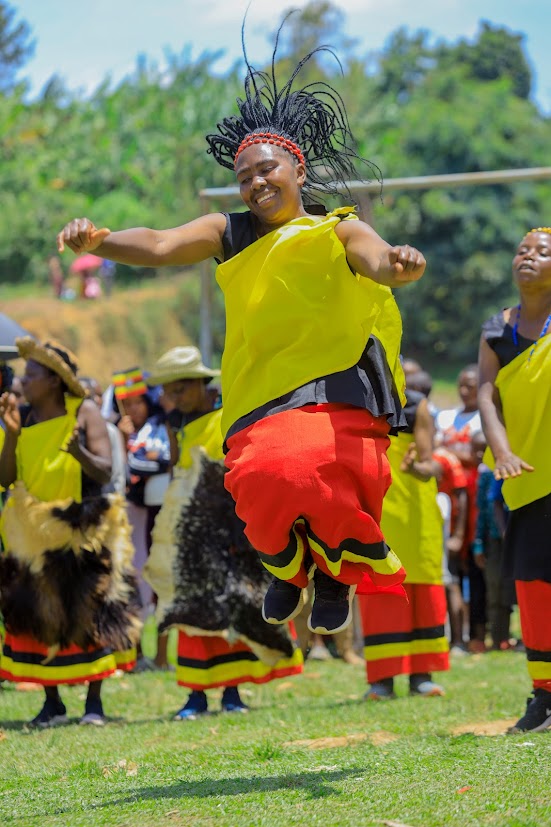Local communities surrounding Bwindi Impenetrable National Park joined forces on World Gorilla Day to demonstrate their unwavering commitment to Mountain Gorilla conservation through a comprehensive day of environmental activities that highlighted the critical role of community-led conservation efforts.
The celebration, organized by Change a Life Bwindi in partnership with local communities, was held under the theme “Community Responsibility towards Conservation of Mountain Gorillas and Ending Plastic Use.” The event brought together diverse stakeholders, including the National Environment Management Authority (NEMA), Max Planck Institute, Kabale University, Uganda Wildlife Authority (UWA), hoteliers, and Kanungu District Local Government.
The day’s activities, which took place across the Ruhija tracking sector in Mpungu subcounty, Kanungu district, began at 9 AM with volunteers loading trucks with plastic waste collected from throughout the district.
The program also included sports activities for youth engagement, environmental cleaning, strategic installation of waste bins, educational exhibitions, public awareness campaigns, and large-scale indigenous tree planting.
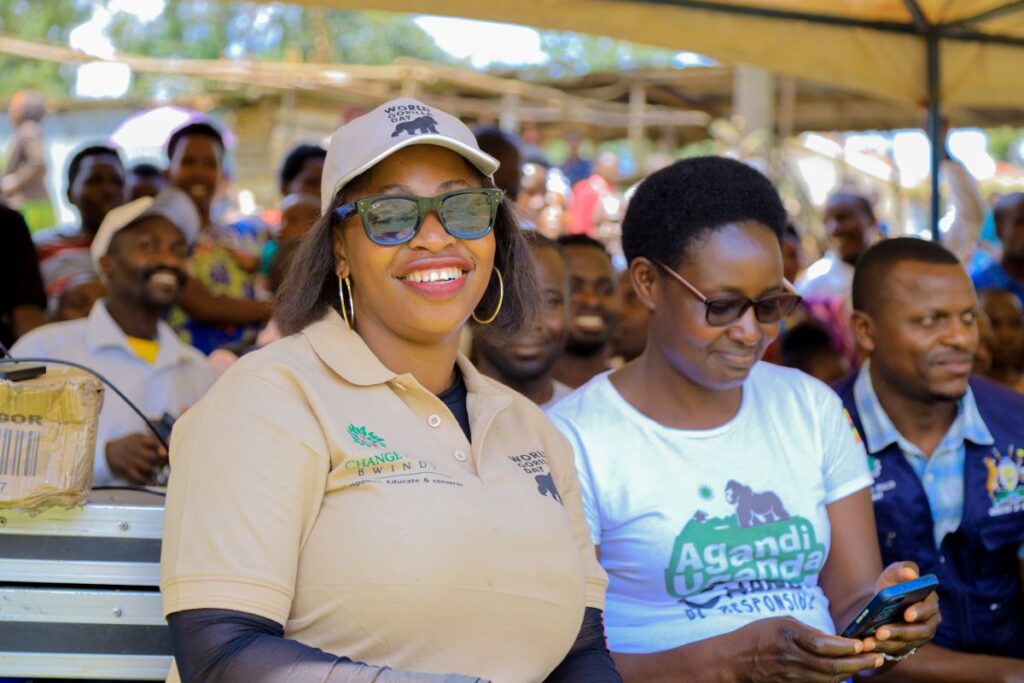
Christine Katushabe, the Founder of Change a Life Bwindi, said that as an organization, they want to change the approach of conservation by empowering the local community to take ownership of the conservation efforts. She stressed the need to use local solutions for local problems. This primarily informed the community’s direct involvement in the day’s activities.
“Protection of African forests should be done by Africans. The future of our forests is in our hands,” Katushabe stated. The project featured over 70 different indigenous tree species, including Prunus Africana, Oruzogo, a delicacy for the Mountain Gorillas, Cordia Africana, Dodonaea Viscosa, Aidia Coriaria, Beilschmiedia Ugandensis, and successfully restored 65 acres out of a planned 100-acre conservation area.
The celebration addressed the pressing issue of plastic pollution, which poses significant threats to both wildlife and human communities in the region.
The day began with an extensive cleaning campaign at 9 AM, where community members from about eight villages, including Mugarama, Buzirante, Hakikome, Nyamishamba, swept through and picked up plastic bottles and polythene littered by the roadside at the major road used by tourists to the pristine Bwindi, loaded trucks with plastic waste and had it driven to Kabale at a dumping site.
“Plastics are not just harmful to the environment, but also to us as human beings,” Katushabe explained. “Their improper use and disposal lead to pollution that damages wildlife, disrupts ecosystems, and contaminates our soil and water, ultimately affecting our health and well-being.”
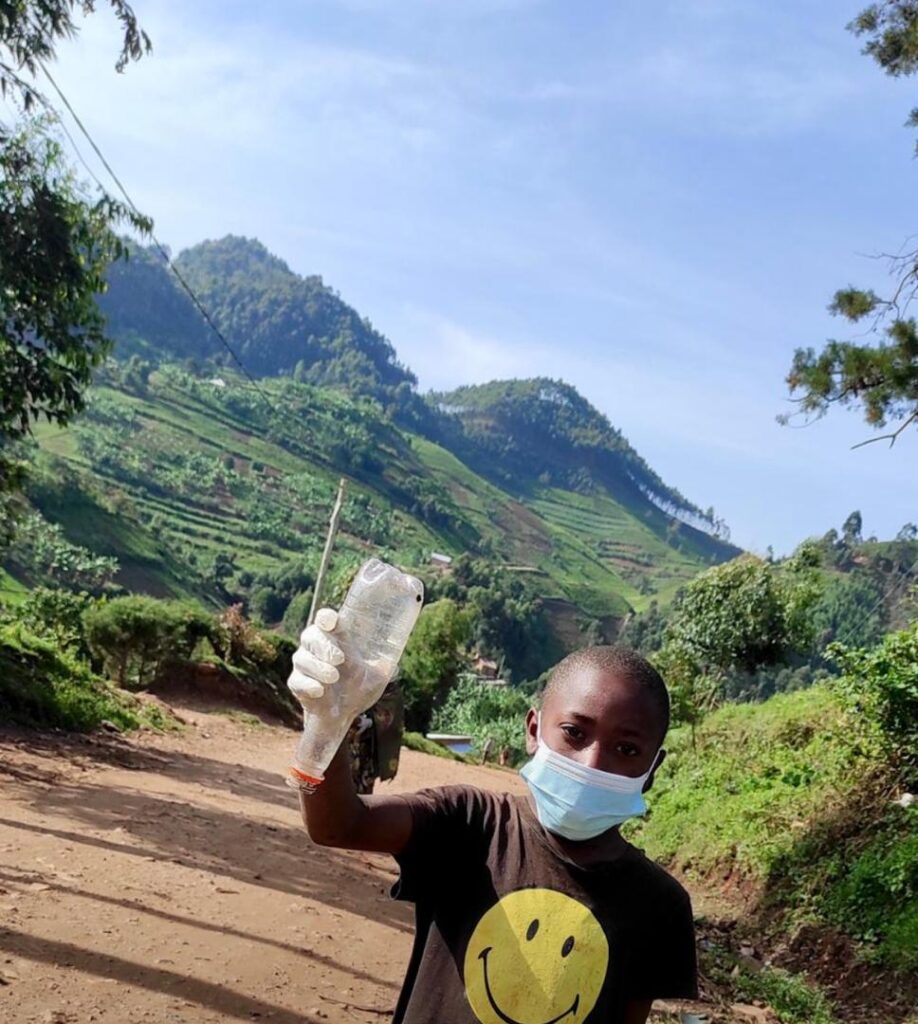
A key component of the day’s activities focused on engaging young people through environmental education through music, dance, and drama by Mburameizi Primary School, women groups, and sports. Participants in the “sport for conservation” teams planted indigenous trees, with each team member pledging sole responsibility for the care of their planted tree.
“We want to mentor each child young so that when they grow up, they appreciate and take on the role of conservation in the communities,” Katushabe said. ‘Getting the team to look after the trees they have planted is one way of ensuring they develop a personal connection to environmental stewardship.”
The event received strong support from local government officials, who emphasized the importance of community involvement in conservation efforts.
“The collaboration we see here today between local communities and various stakeholders represents the kind of partnership we need to protect our natural heritage,” said Medius Kiconco, the District Councilor.
Kiconco also revealed that “Our mountain gorillas are not just a national treasure, but a global one, and it’s inspiring to see our communities taking such active roles in their protection.”
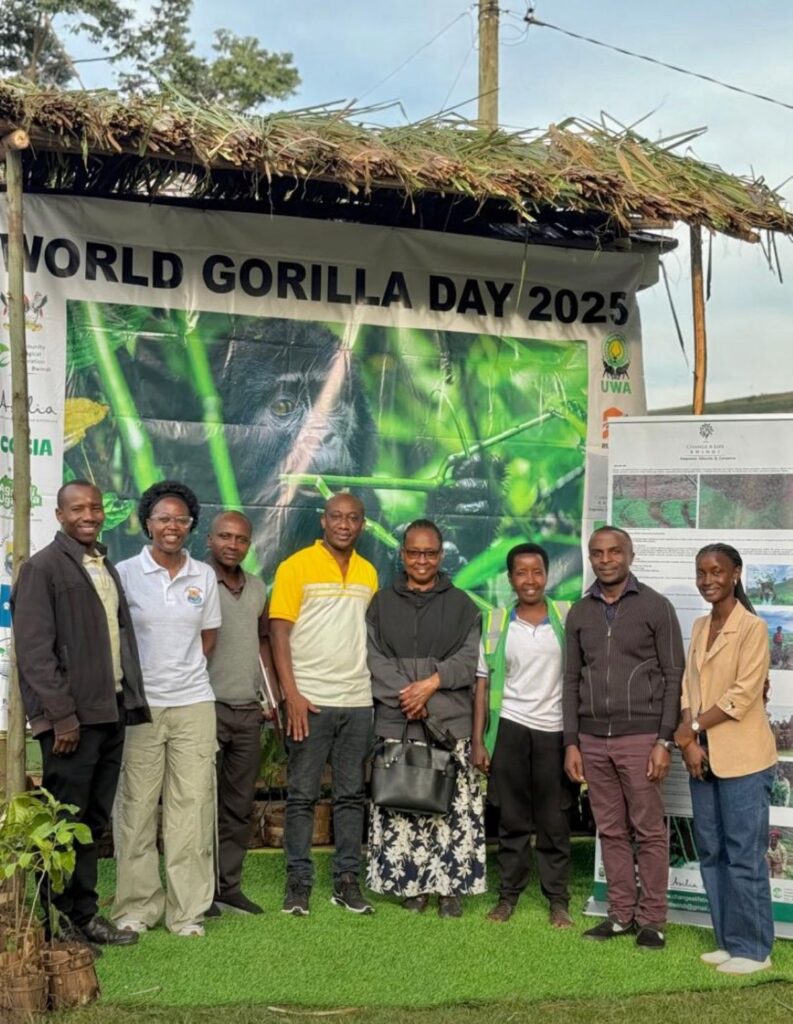
The partnership between Change a Life Bwindi and multiple institutions, including international research organizations like the Max Planck Institute, demonstrates the global significance of mountain gorilla conservation while maintaining focus on community-led initiatives.
Moses Akantorano, the Project Manager from the Max Planck Institute, praised the community-centered approach: “What we’re witnessing in Bwindi is a model for conservation that other regions can learn from. The combination of scientific research, community engagement, and local leadership creates sustainable conservation practices that benefit both wildlife and people.”
The celebration comes at a crucial time for mountain gorilla conservation. With only approximately 1,000 mountain gorillas remaining in the wild globally, community-driven conservation efforts like those demonstrated in Kanungu district are essential for the species’ survival. The mountain gorilla population in Bwindi Impenetrable National Park represents approximately half of the world’s remaining mountain gorillas, making community conservation efforts in this region critically important for the species’ global survival.
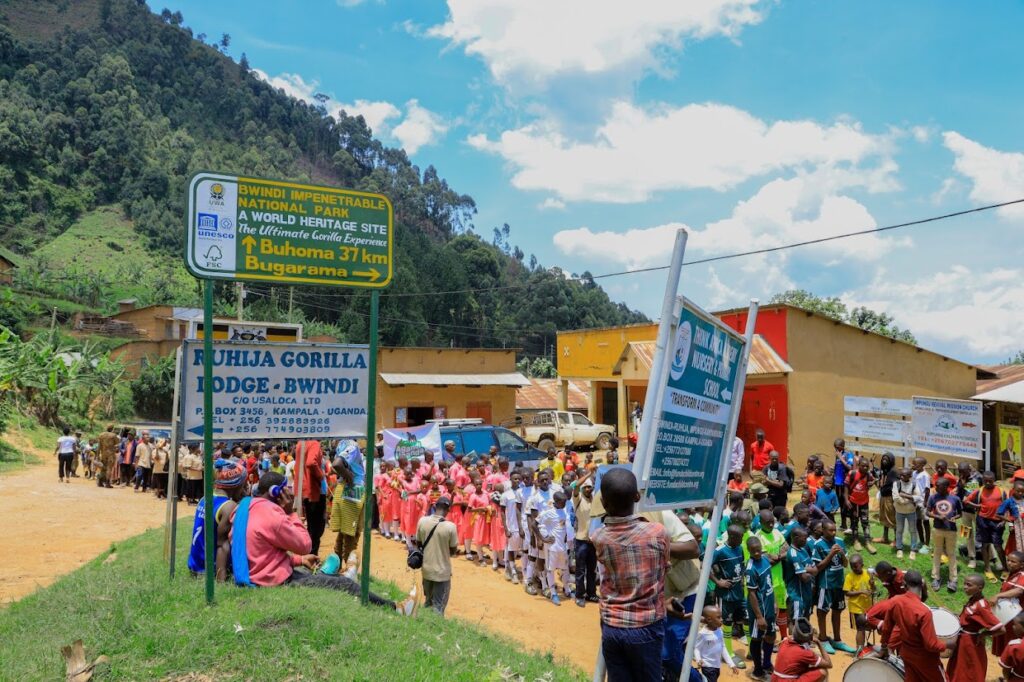
Dr. James Musinguzi, the UWA executive director, said the celebrations emphasise the collective actions taken so far, and the journey ahead to protect and conserve the gorillas. He noted that 70% of the tourism revenue comes from gorillas. Musinguzi also revealed that together with the Uganda Communications Commission (UCC) and the telecom companies, UWA is setting up 69 telecom masts in and around several protected areas across the country in order to enhance connectivity and visitor experience.
Juliana Kagwa, the UTB chief executive officer, pointed out the importance of gorillas to Uganda’s economy, saying the number of tourists visiting gorilla habitats has been increasing post-COVID-19. “A total of 50,726 tourists visited Bwindi-Mgahinga conservation area last year, 2024, higher than 48,568 tourists who visited the same gorilla protected area in the year 2023 and 38,105 in 2022,” she observed.
The World Gorilla Day celebration brought together members of diverse local communities, including the Batwa, Bakiga, Rwandese, and Bafumbira peoples, demonstrating the inclusive nature of conservation efforts in the region. This diversity reflects the collaborative approach needed for effective conservation in areas where multiple communities share borders with critical wildlife habitats.
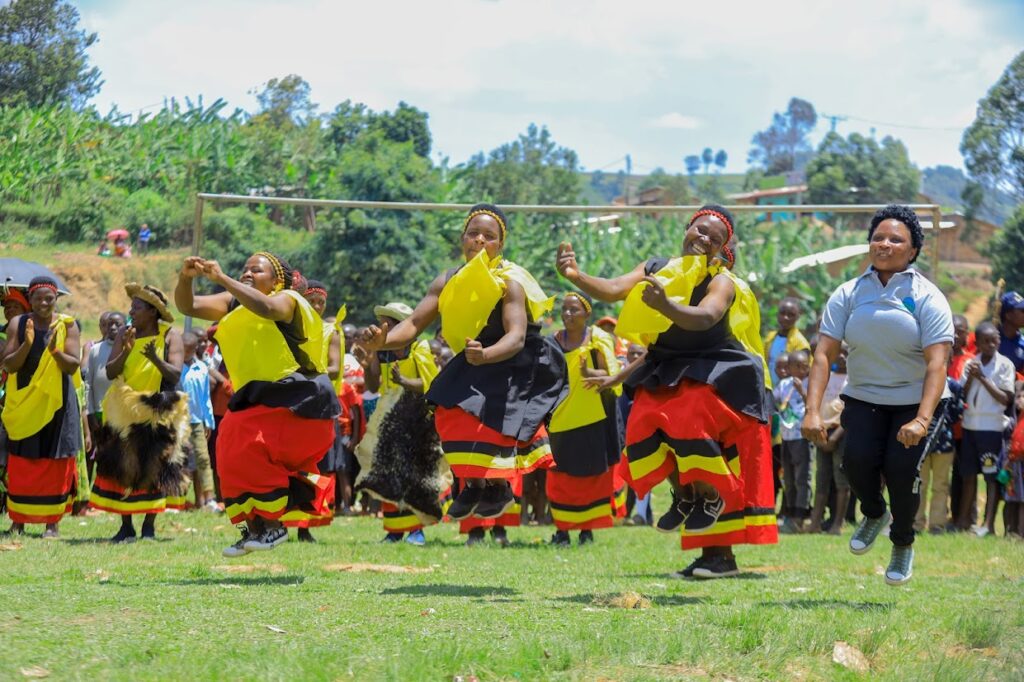
The success of this World Gorilla Day celebration underscores the critical role local communities play in protecting Uganda’s mountain gorilla population and their habitat. The comprehensive approach, combining immediate environmental action with long-term education and community engagement, provides a sustainable model for conservation efforts in the region.
As communities continue to demonstrate their commitment to conservation, the partnership between local organizations, government agencies, and international institutions offers hope for the future of mountain gorilla conservation in one of the world’s most biodiverse regions.
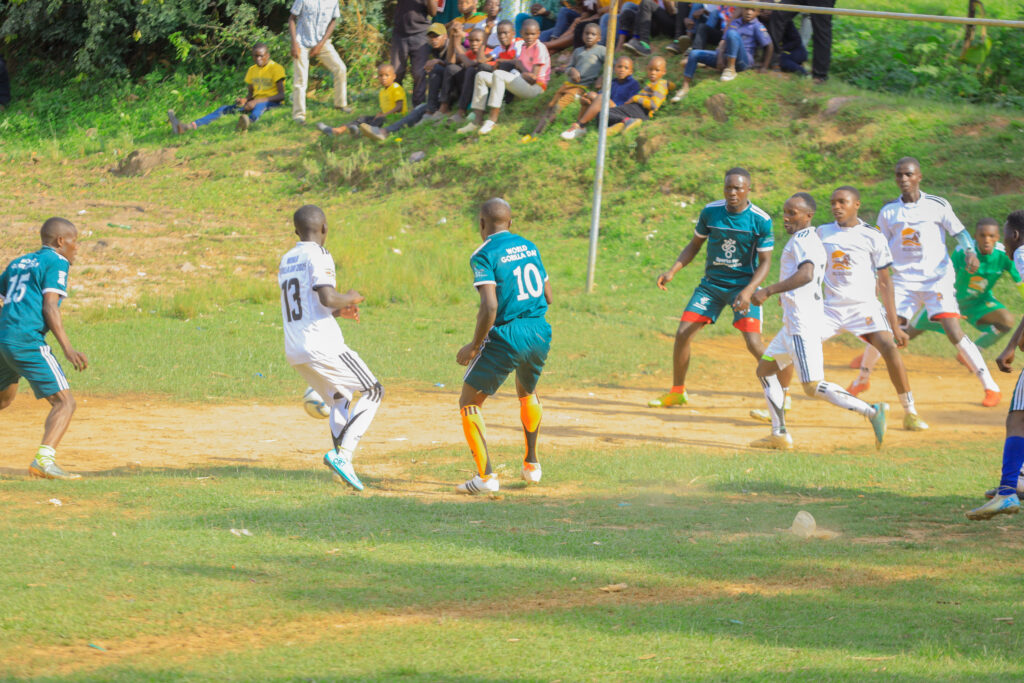
The event serves as a powerful reminder that effective conservation requires not just scientific expertise and government support, but the active participation and leadership of the communities that share their daily lives with these remarkable endangered species.
